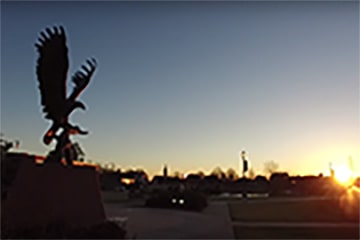Center for Community Engagement
About USM Community-Engaged Learning
Page Content
USM classifies community-engaged classes into two categories, academic service-learning and community-engaged learning. Faculty/directors should report classes that are academic service-learning for the ASL designation. CCE also tracks community-engaged learning classes (see description below) - please contact cceFREEMississippi to tell us about your course!
Designated Academic Service-Learning (ASL) classes are indicated on the Class Schedule. Students regularly seek ASL classes because of the Citizen Scholars distinction. Any class can also be offered as ASL with a special agreement between a faculty member and student (see Add an ASL Track). Faculty teaching designated Academic Service-Learning classes may report use of High-Impact Practices.
Links
List of USM Service-Learning Classes
Apply for Academic Service-Learning Designation
Online Resources
Faculty Training (Seminar on Service-Learning)
Track Student Service Hours
Funding Opportunities
Other Ways to Get Involved
Description of community-engaged learning:
- Community-based experiences support academic learning objectives
- Class involves collaboration with organization(s) external to USM
- Students have structured (essays, journals, oral, eg) opportunities to reflect on how community-based experiences connect with academic learning.
To be considered USM service-learning, there’s a few extra requirements:
- Community-based experiences occur throughout semester for at least 15 hours
- Collaborators are nonprofit or government, PK- 12 schools, or philanthropic
- Community-based projects meet a need identified by the community
- Class has potential to impacts students’ sense of personal values and civic responsibility
First steps for faculty interested in community-engaged learning:
- Contact cce@usm.edu so we can provide support and/or partner suggestions
- Connect with your partner to determine what students will work on and when– what are services students can provide that will also enhance their learning?
- Develop your syllabus (this checklist might be helpful)
- Submit your service-learning designation application – no need to wait for approval
Ongoing
- Please notify cce@usm.edu before Feb. 1 about Summer or Fall semester service-learning plans and before Sept. 15 for Spring service-learning plans. We will get it marked as “Academic Service-Learning” (ASL) in SOAR once designation is granted
- ASL indications can be removed at any time and late ASL indications will be added the week before classes start.
Incentives for Students
- Students who take 2 ASL courses at USM partially meet the requirements to graduate as a Citizen Scholar. Students can also make special arrangements with faculty to have a class count as service-learning.
- Students in designated ASL classes receive an end-of-semester certificate and letter from CCE outlining contributions and skills gained.
Other resources and tips
- CCE has some online resources that may help you develop your class.
- CCE offers a Service-Learning Faculty Fellows program every spring – participants learn best practices of service-learning, teach ASL class, receive $2400 compensation
- You or your community partner can add service events on Get Connected, https://volunteer.usm.edu, and have students sign up. Then students can report hours. You, as faculty member, can see how many hours students have completed.
- Mini-grants for community engagement projects and community-engaged research (both faculty and student-led) are available.
Service-learning is a “course-based, credit-bearing educational experience in which students participate in an organized service activity that meets identified community needs, and reflect on the service activity in such a way as to gain further understanding of course content, a broader appreciation of the discipline, and an enhanced sense of personal values and civic responsibility” (Bringle and Hatcher, 1995, p. 112)..
Service-learning experiences should be designed to meet both student and community partner needs, which often means that co-ops, internships, and/or clinical practicums designed solely for student benefit are not considered service-learning.
Faculty or community partners interested in learning more about service-learning should contact Christy Kayser at christy.kayser@usm.edu or 6-6467.
